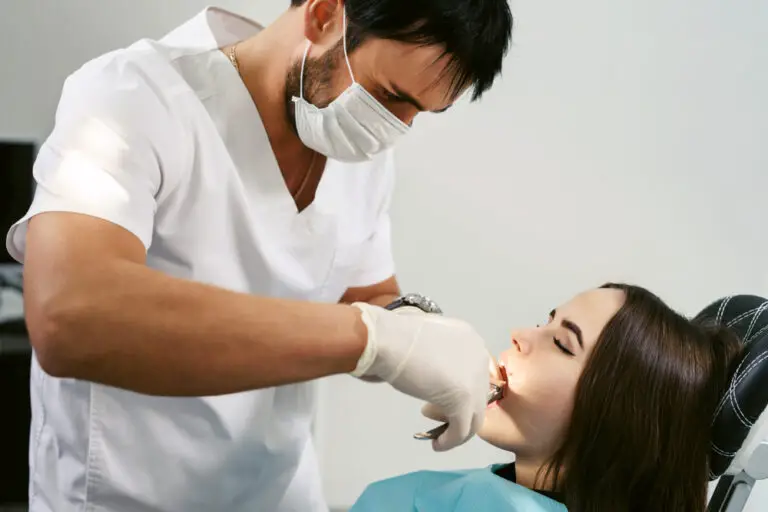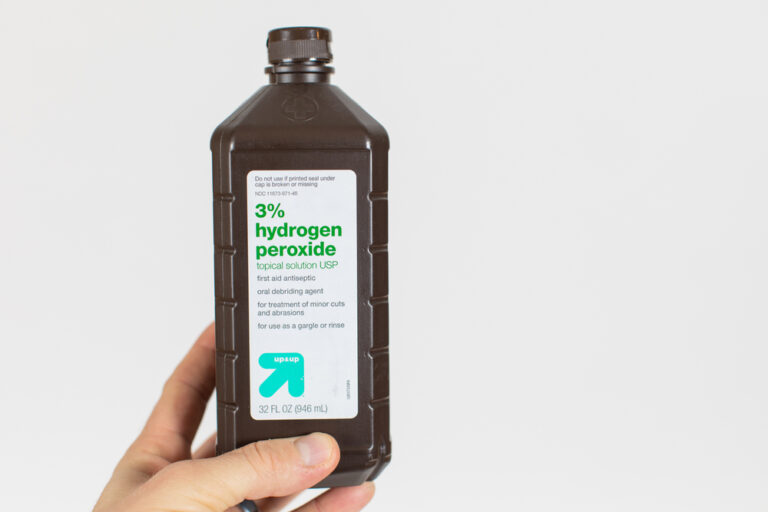Tooth pain can be a real pain, especially when you’re pregnant. Hormonal changes during pregnancy can cause a variety of dental issues, including toothaches, sensitive gums, and more. If you’re experiencing tooth pain while pregnant, it’s important to know what you can do to alleviate the discomfort.
Fortunately, there are several options available to help relieve tooth pain during pregnancy. Natural remedies such as clove oil, saltwater rinses, and cold compresses can provide relief for mild toothaches. It’s important to note, however, that you should always consult with your dentist or healthcare provider before trying any new remedies or medications while pregnant.
Understanding Tooth Pain During Pregnancy
Pregnancy can be a beautiful time, but it can also bring some unpleasant changes to your body, including tooth pain. Tooth pain during pregnancy is a common issue that many women experience. The good news is that there are things you can do to alleviate the discomfort. In this section, we will explore the causes of tooth pain during pregnancy.
Causes of Tooth Pain
There are several reasons why you may experience tooth pain during pregnancy. Some of the most common causes include:
- Hormonal changes: During pregnancy, your body produces more estrogen and progesterone, which can affect your gums and teeth.
- Increased blood flow: Pregnant women have an increased blood flow, which can cause swelling and inflammation in the gums.
- Poor oral hygiene: If you don’t brush and floss regularly, bacteria can build up in your mouth, leading to tooth decay and gum disease.
- Diet: Eating a diet high in sugar and carbohydrates can increase your risk of tooth decay.
- Teeth grinding: Some women grind their teeth during pregnancy, which can cause tooth pain and sensitivity.
If you are experiencing tooth pain during pregnancy, it’s important to talk to your dentist. They can help you identify the cause of your pain and recommend the best course of treatment.
Remember, taking care of your oral health during pregnancy is important for both you and your baby. Make sure to brush and floss regularly, eat a healthy diet, and visit your dentist for regular checkups and cleanings.
Safe Pain Relief Options

If you are experiencing tooth pain during pregnancy, you may be wondering what pain relief options are safe for you and your baby. Fortunately, there are several safe pain relief options available.
Over the Counter Medications
When it comes to over the counter medications, acetaminophen (Tylenol) is generally considered safe for pregnant women to use for pain relief. However, it is important to always check with your healthcare provider before taking any medication during pregnancy.
It is important to note that aspirin and nonsteroidal anti-inflammatory drugs (NSAIDs) such as ibuprofen and naproxen should be avoided during pregnancy, especially during the third trimester, as they can increase the risk of bleeding and other complications.
Natural Remedies
If you prefer to avoid medication, there are several natural remedies that may help relieve tooth pain during pregnancy. Here are a few options:
- Saltwater rinse: Mix a teaspoon of salt with a cup of warm water and swish it around in your mouth for 30 seconds before spitting it out. This can help reduce inflammation and pain.
- Clove oil: Applying a small amount of clove oil to the affected tooth can provide temporary relief from tooth pain. However, it is important to use only a small amount and avoid swallowing it.
- Cold compress: Applying a cold compress to the affected area can help reduce inflammation and numb the pain.
It is important to note that while natural remedies are generally considered safe, it is still important to check with your healthcare provider before using them during pregnancy.
In summary, there are several safe pain relief options available for tooth pain during pregnancy. Always check with your healthcare provider before taking any medication or using any natural remedies.
Prevention Strategies
When it comes to tooth pain during pregnancy, prevention is key. Taking care of your teeth and gums can help prevent toothaches and other oral health issues. Here are some prevention strategies to consider:
Oral Hygiene Practices
One of the most important things you can do to prevent tooth pain during pregnancy is to practice good oral hygiene. This means brushing your teeth at least twice a day and flossing once a day. Use a soft-bristled toothbrush and fluoride toothpaste. Be gentle when brushing and flossing to avoid irritating your gums.
In addition to brushing and flossing, you may want to consider using an antimicrobial mouthwash to kill bacteria that can cause tooth decay and gum disease. Look for a mouthwash that is alcohol-free and safe for use during pregnancy.
Regular Dental Checkups
Regular dental checkups are an important part of preventing tooth pain during pregnancy. It’s recommended that you see your dentist for a checkup and cleaning at least once every six months. During your checkup, your dentist can identify any potential issues and treat them before they become more serious.
If you’re pregnant, it’s important to let your dentist know. They may recommend postponing certain treatments until after your baby is born. However, routine cleanings and checkups are generally safe during pregnancy.
By practicing good oral hygiene and seeing your dentist regularly, you can help prevent tooth pain and other oral health issues during pregnancy.
When to Seek Professional Help

If you are experiencing tooth pain during pregnancy, it is important to know when to seek professional help. While some tooth pain can be managed at home, there are certain signs and symptoms that indicate the need for professional dental care.
Signs and Symptoms
If you are experiencing any of the following signs or symptoms, it is important to seek professional dental care:
- Severe or persistent tooth pain
- Swelling or pus around the tooth
- Fever or chills
- Difficulty breathing or swallowing
- Unusual taste or odor in your mouth
If you are experiencing any of these symptoms, it is important to contact your dentist or healthcare provider as soon as possible. Delaying treatment can lead to more serious dental problems and may even affect the health of your baby.
Dental Procedures During Pregnancy
If you need dental treatment during pregnancy, it is important to inform your dentist that you are pregnant. Your dentist can work with you to develop a treatment plan that is safe for you and your baby.
Some dental procedures, such as routine cleanings and fillings, can be performed safely during pregnancy. However, certain procedures, such as X-rays and some types of anesthesia, may need to be postponed until after your baby is born.
Your dentist may also recommend certain medications or home remedies to manage your tooth pain during pregnancy. It is important to follow your dentist’s instructions carefully and to inform them of any changes in your symptoms.
In summary, if you are experiencing severe or persistent tooth pain, swelling, fever, or other unusual symptoms, it is important to seek professional dental care during pregnancy. Your dentist can work with you to develop a safe and effective treatment plan that is best for you and your baby.
Frequently Asked Questions
How can I safely relieve tooth pain during pregnancy?
To safely relieve tooth pain during pregnancy, you can try rinsing your mouth with warm saltwater, applying a cold compress to the affected area, or using a toothpaste designed for sensitive teeth. It’s important to avoid using any medication without consulting your healthcare provider first.
What natural remedies can I use for tooth pain while pregnant?
Some natural remedies for tooth pain during pregnancy include clove oil, tea tree oil, and aloe vera gel. However, it’s important to note that not all natural remedies are safe during pregnancy, so it’s best to consult with your healthcare provider before trying any of them.
Is it safe to use over-the-counter painkillers for tooth pain during pregnancy?
It’s important to consult with your healthcare provider before taking any over-the-counter painkillers during pregnancy. Some painkillers, such as ibuprofen, should be avoided during pregnancy. Your healthcare provider can recommend safe pain relief options for you.
Can tooth pain during pregnancy affect my baby?
Untreated tooth pain during pregnancy can potentially lead to complications such as preterm birth and low birth weight. It’s important to seek treatment for tooth pain to prevent any potential risks to your baby’s health.
When should I seek medical attention for tooth pain during pregnancy?
You should seek medical attention for tooth pain during pregnancy if the pain is severe or persistent, or if you notice any signs of infection such as swelling or fever. It’s important to get prompt treatment to prevent any potential complications.
What can I do to prevent tooth pain during pregnancy?
To prevent tooth pain during pregnancy, you should maintain good oral hygiene by brushing twice a day and flossing daily. You should also avoid sugary and acidic foods and drinks, and visit your dentist regularly for cleanings and checkups.






